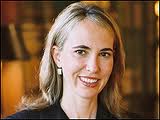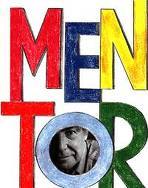The 21st Century Retooling of the Church – Part XVI
From Accusation, Persecution, Judgment, and Death to Resurrection Power
 In past blogs I have shown that when the natural, our everyday routine life, is intersected by the supernatural, that intervention by God, we experience the Cross. I call those moments “God Moments” because He intervenes into one’s life. What I have forgotten was the cross is also a place of pain. Jesus faced extreme pain on the Cross. At Gethsemane he saw beforehand the reality of what he was about to face and knew it would be painful, yet he proved to be obedient.
In past blogs I have shown that when the natural, our everyday routine life, is intersected by the supernatural, that intervention by God, we experience the Cross. I call those moments “God Moments” because He intervenes into one’s life. What I have forgotten was the cross is also a place of pain. Jesus faced extreme pain on the Cross. At Gethsemane he saw beforehand the reality of what he was about to face and knew it would be painful, yet he proved to be obedient.
The Cross is a place of death. Romans used it to torture, for sheer cruelty. When we take something to the Cross, we are taking it to a place of death, but with Christianity, we take things there because we know that the lying it down at the Cross will produce only one thing, a resurrection with power.
I like the promise of the Resurrection, the power, the life, but the pain of the Cross is totally against my flesh and desires. I wish there was a spiritual “pain killer”, but I do not know of any. Jesus said to “take up your cross and follow me.” The “following” I want to do, but counting the cost, facing the pain is difficult.
If we wish to retool the Church for the 21st Century, we need to realize that everyone/anyone who has a pastoring/shepherding spirit will help people to face their painful Crosses. Psalms 23 states, “Though I walk through the Valley of the Shadow of Death, I will fear no evil. Thy rod and thy staff will comfort thee.” The rod and the staff is that of a shepherd. The Valley of the Shadow of Death is the foot of the Cross, the place of pain, but the place one can travel with a pastor/shepherd. The rod and staff is for protection, direction, and support.
The believer with the passion to care, nurture, and develop is not afraid to “walk through” trials, no matter how dark with another person. It takes a special kind of believer full of faith to take this walk, this passion, this drive, this desire to reach out to the hurting, the confused, the lost. “Surely goodness and mercy will follow me all the days of my life, and I will dwell in the House of the Lord forever.” One with the pastoring/shepherding spirit majors in “goodness and mercy”. While rest of the world judges when facing the Cross, the pastor/shepherd extends “goodness and mercy”. Where there is no “mercy”, there is no resurrection power.
What is the secret of the Cross is that God can take what seems to be the “ugliest”, “cruelest”, most “unjust” scene in the history of mankind, and transform it into a resurrection beauty with compassion and justice. In spite of the pain, the Cross always leads to gain, because the mercy of God takes us through it, and I thank him for giving the church the gift of a believer who cares, nurtures, and develops His sheep.






































